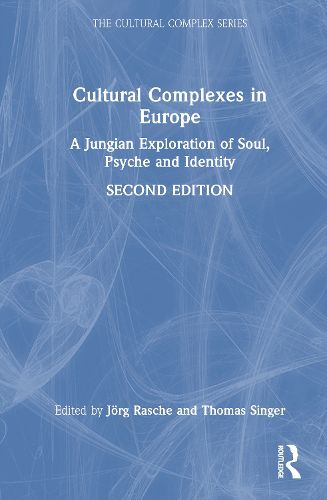Readings Newsletter
Become a Readings Member to make your shopping experience even easier.
Sign in or sign up for free!
You’re not far away from qualifying for FREE standard shipping within Australia
You’ve qualified for FREE standard shipping within Australia
The cart is loading…






What is going on in Europe? The actual conflicts between its nations or states can be traced back to old and revived cultural complexes. In this book, first compiled in 2016, Jungian analysts explore the cultural identities of their European homelands and nations.
This is a new approach to old questions: What makes a people feel at home? How do their traditions and narratives form a cultural Self and identity? How do they differ from one another? Exploring cultural complexes blends knowledge of history, economics, sociology, anthropology, geography, psychology, religious studies, literature, and poetry. But as every complex is built around an emotional core, the study of how cultural complexes live in the psyche is not limited to these disciplines. Each author and reader engages in a confrontation with their emotions, prejudices, and projections. The shape that the ideas and feelings of a cultural complex take in the psyche can be inchoate, rapidly shifting and yet paradoxically long standing, and often quite immune and impermeable to the reason that traditional disciplines of thought would impose on them. These cultural complexes do not necessarily provide a coherent or linear sequencing of facts and events because that is not how they actually exist and function in the psyche of individuals and groups. At the same time, cultural complexes shape what it means to be a citizen of a particular city, region, or country of Europe.
This remarkable book is an important read for Jungian analysts and those interested in Europe's historical and cultural development.
$9.00 standard shipping within Australia
FREE standard shipping within Australia for orders over $100.00
Express & International shipping calculated at checkout
Stock availability can be subject to change without notice. We recommend calling the shop or contacting our online team to check availability of low stock items. Please see our Shopping Online page for more details.
What is going on in Europe? The actual conflicts between its nations or states can be traced back to old and revived cultural complexes. In this book, first compiled in 2016, Jungian analysts explore the cultural identities of their European homelands and nations.
This is a new approach to old questions: What makes a people feel at home? How do their traditions and narratives form a cultural Self and identity? How do they differ from one another? Exploring cultural complexes blends knowledge of history, economics, sociology, anthropology, geography, psychology, religious studies, literature, and poetry. But as every complex is built around an emotional core, the study of how cultural complexes live in the psyche is not limited to these disciplines. Each author and reader engages in a confrontation with their emotions, prejudices, and projections. The shape that the ideas and feelings of a cultural complex take in the psyche can be inchoate, rapidly shifting and yet paradoxically long standing, and often quite immune and impermeable to the reason that traditional disciplines of thought would impose on them. These cultural complexes do not necessarily provide a coherent or linear sequencing of facts and events because that is not how they actually exist and function in the psyche of individuals and groups. At the same time, cultural complexes shape what it means to be a citizen of a particular city, region, or country of Europe.
This remarkable book is an important read for Jungian analysts and those interested in Europe's historical and cultural development.